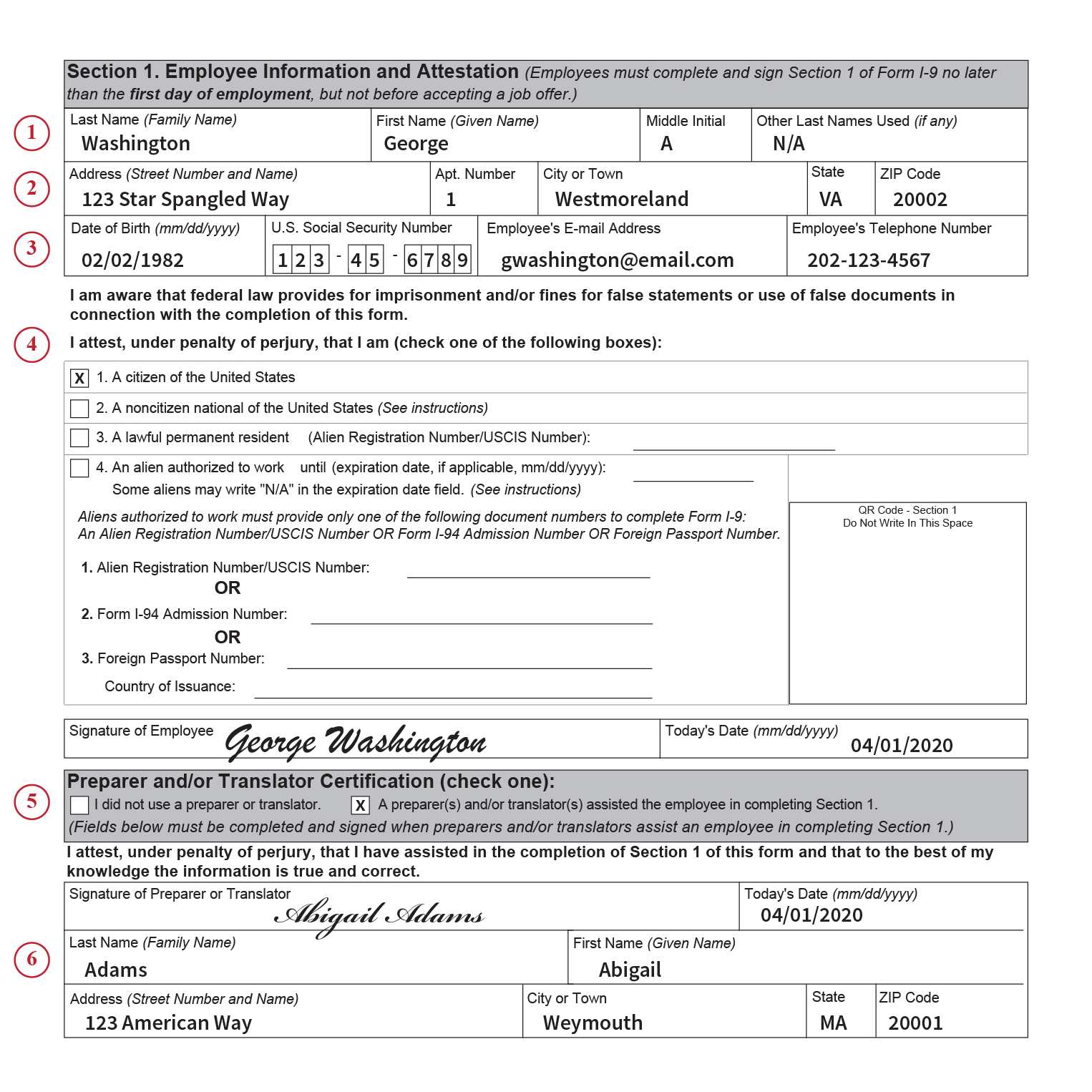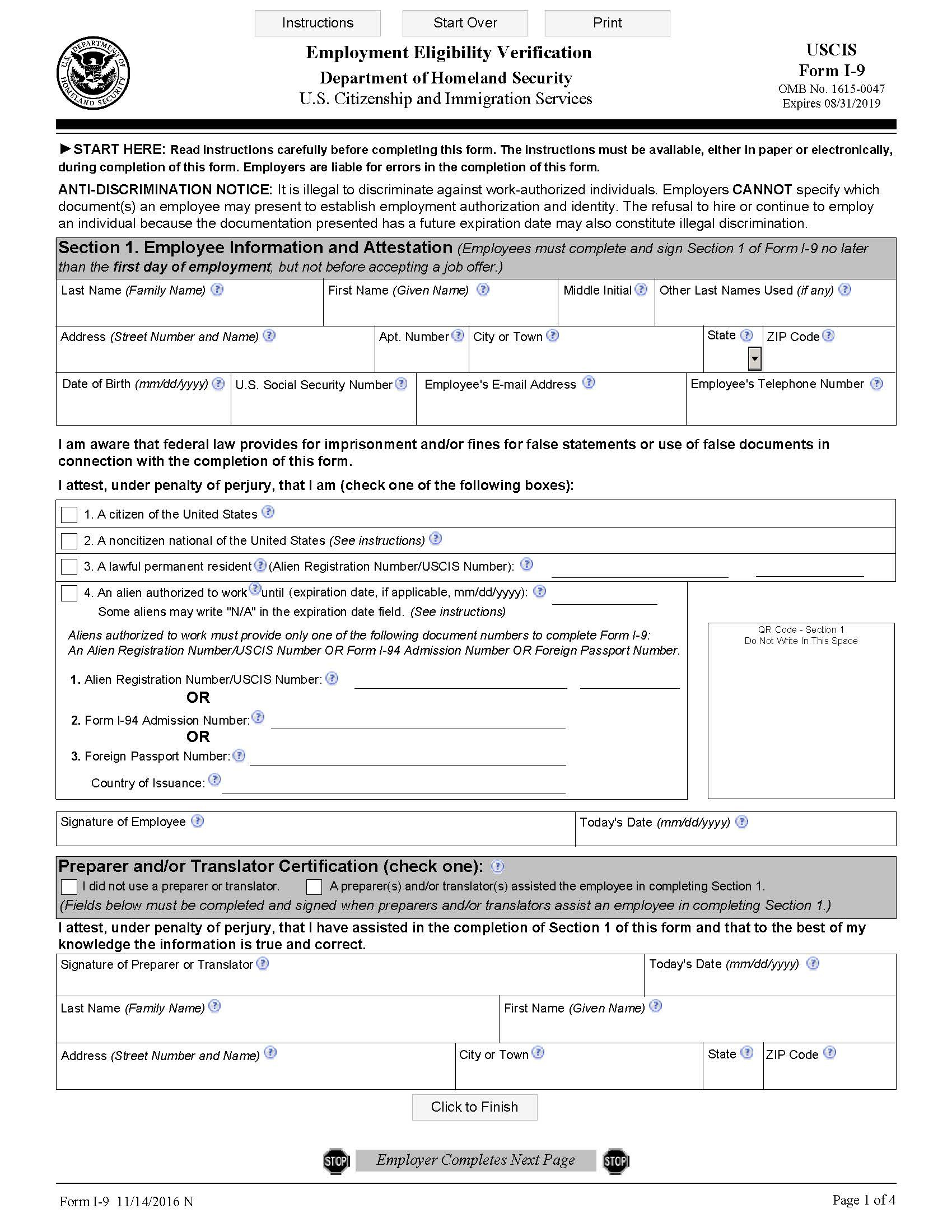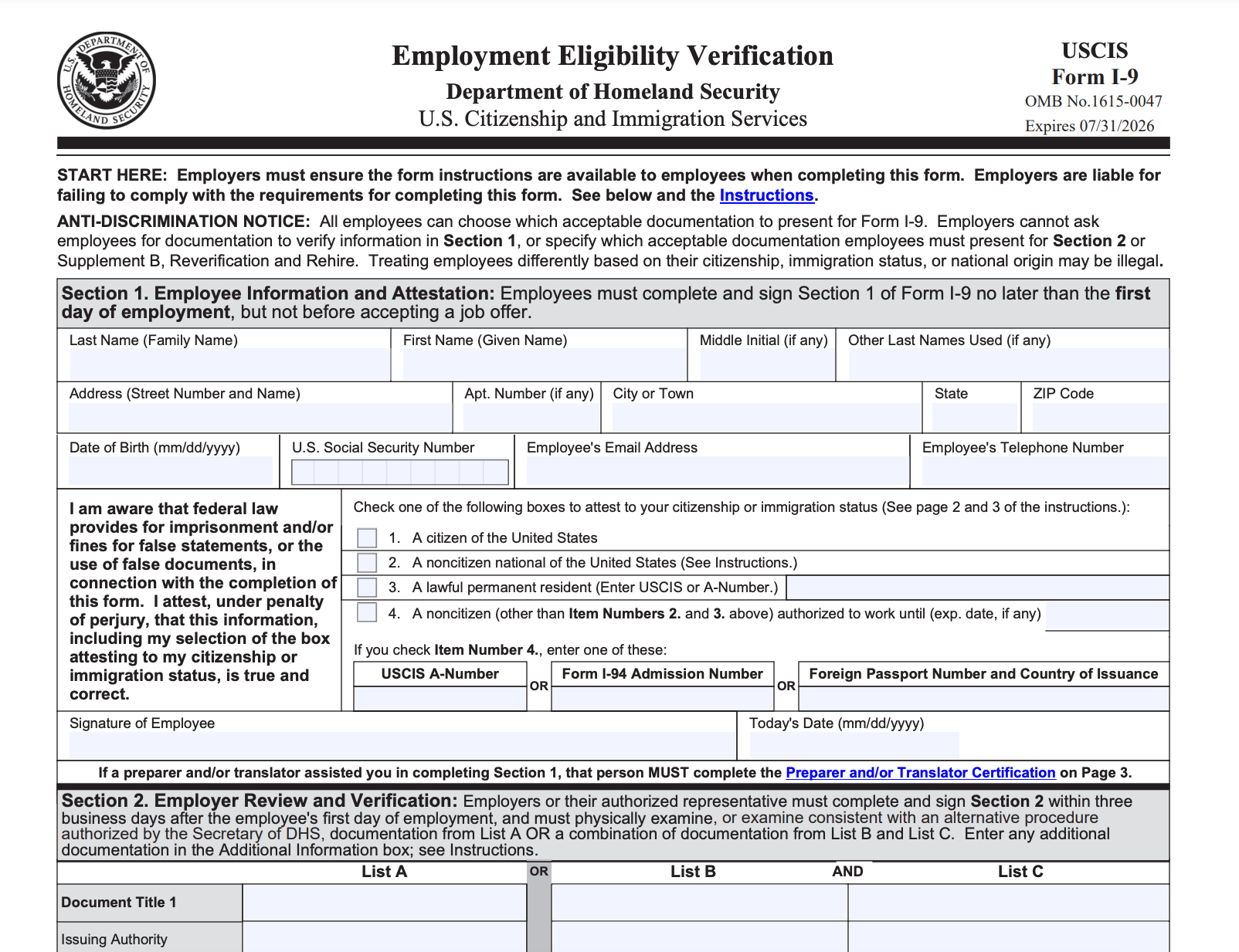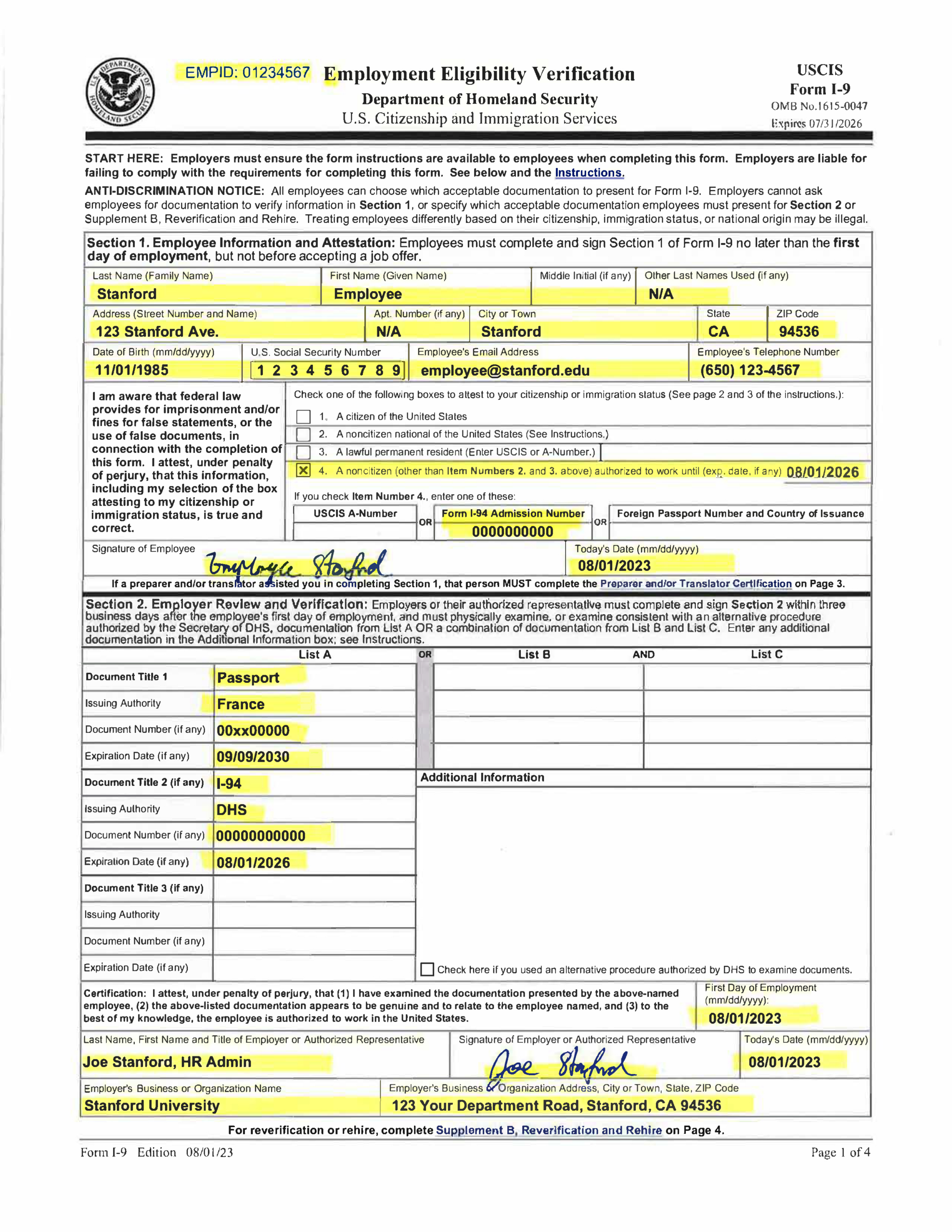The I-9 form, or Employment Eligibility Verification form, is required for all individuals hired for employment in the United States after November 6, 1986. This form must be completed by both employers and employees to confirm that employees are legally authorized to work in the U.S. Here’s a detailed breakdown of who needs to complete an I-9 form:
Employees
Every employee hired after November 6, 1986, must complete an I-9 form at the time of hire. This includes:
- U.S. Citizens
- Non-citizen Nationals of the United States
- Lawful Permanent Residents
- Aliens Authorized to Work in the U.S., either temporarily or permanently, such as those with work visas.
The form must be completed regardless of the employee’s citizenship status, making it a universal requirement for all individuals working in the U.S.
Employers
All U.S. employers are required to ensure that each new hire properly completes the I-9 form and to verify the authenticity of their documentation. Employers are responsible for:
- Ensuring the form is completed correctly.
- Verifying that the documents presented are genuine and that they validate the employee’s identity and work authorization.
- Retaining completed I-9 forms for inspection if requested by authorized government officials. Employers must keep an I-9 form on file for every person on their payroll who is required to complete it.
Special Cases
- Independent Contractors: Employers do not need to complete I-9 forms for independent contractors. However, companies must be cautious about misclassifying employees as independent contractors.
- Employees Hired on or before November 6, 1986: These employees, who are continuously employed by the same company, are grandfathered out of the I-9 requirement unless they leave and are rehired.
- Casual Domestic Workers in a Private Household: When employment is sporadic, irregular, or intermittent, an I-9 form is not required.
Exemptions
Certain individuals and employment types are exempt from the I-9 requirement:
- Self-employed individuals: They do not need to complete an I-9 for themselves.
- Employees for work outside of the U.S.: Employees hired to work in a location where U.S. law does not apply, such as a foreign branch of a U.S. company, do not require an I-9.
Conclusion
Understanding who needs to complete an I-9 form is crucial for compliance with U.S. employment and immigration laws. Both employees and employers play integral roles in this process, and failure to comply can lead to significant penalties. It is essential for all U.S. employers and their employees to be familiar with these requirements to ensure a legally compliant workforce.
Images Related to Who Needs An I9 Form



